研究するひと #33-English
Takahiro Iwata
The Spectacular Wonders of Closing into the Mysteries of the Minuscule World: Playing a Central Role in the Study of Nucleon Spins
2021.06.15
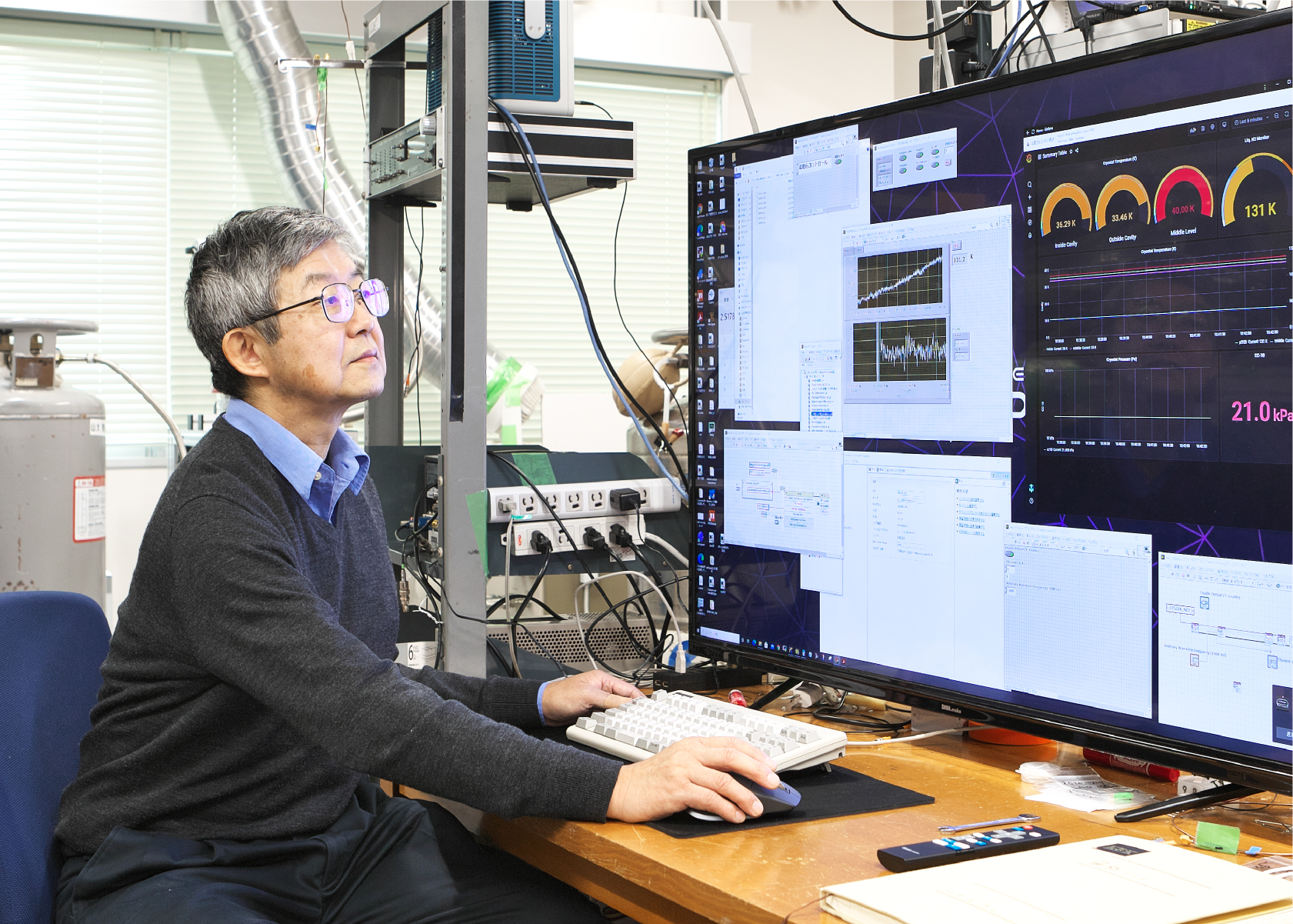

研究するひと #33-English
Takahiro Iwata
2021.06.15

A research project led by Professor Takahiro Iwata that aims to reveal the internal structures of protons and neutrons, one of the smallest units of matter, was accepted by the Grants-in-Aid for Scientific Research (S) program. This is the first project at Yamagata University that won a large grant from this program. The title of the project is “Study of Nucleon Spin Structure in Quark Level with a Large Polarized Target.” It is expected to accelerate the international collaborative study at the European Organization for Nuclear Research (CERN) in Switzerland, which is being conducted by participants from 13 nations, including Professor Iwata. The project is also expected to lead to the establishment of a new elementary particle theory.
Natural science explores and tries to understand various objects and events in the natural world. Of these, Professor Iwata continues to pursue the internal structures of protons and neutrons, which are one of the smallest units of matter. He is participating in the COMPASS Collaboration—an international joint research project with over 200 researchers from 13 nations—as the leader of Japanese participants and has been conducting research work at the European Organization for Nuclear Research (CERN) in Geneva, Switzerland, for many years. A nucleon (collective term referring to protons and neutrons) is formed by elementary particles called quarks bonding with each other. It can rotate by itself like a spinning top and this property is known as “spins.” Nucleon spins were once thought to be caused by quark spins, but previous studies have revealed that the effect of quark spins is only about 30%. This has been a great source of headache to physicists around the world, to the extent that some call it the “spin crisis.” The answer to what the true source of nucleon spins is, is being longed for.
In the study to find the source of nucleon spins using the polarized target at CERN—the largest in the world—the group of Japanese researchers led by Professor Iwata is playing a central role through the use of spin polarized target and large hydrogen target technologies. The COMPASS Collaboration currently focuses not on the rotation of quarks inside nucleons but on their orbital motion (revolution).
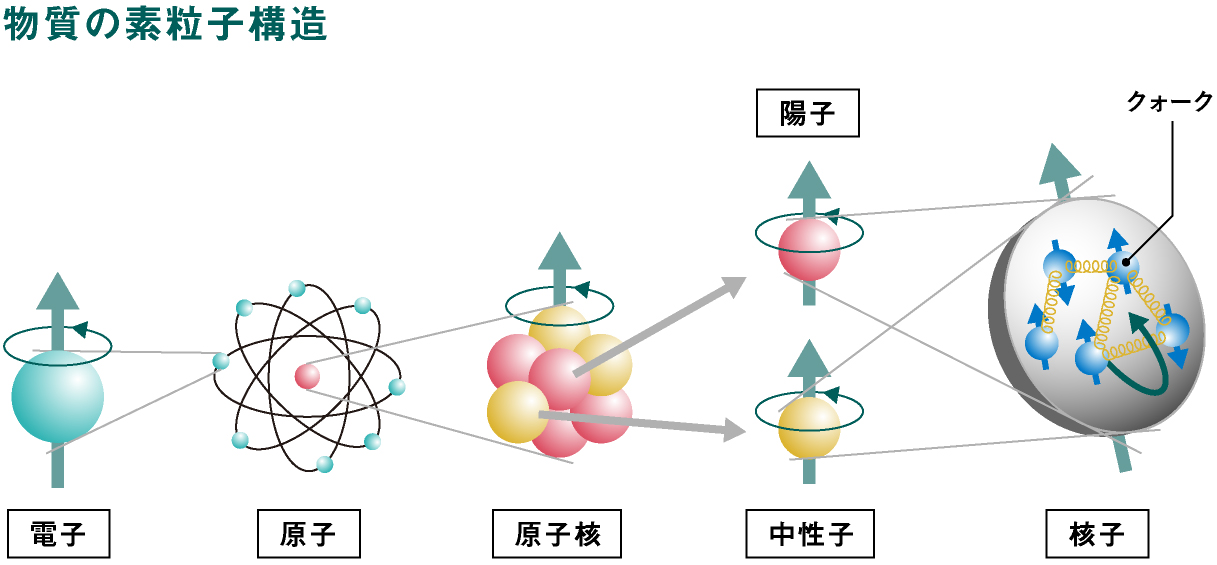
Protons and neutrons make up atomic nuclei and are collectively called nucleons. Nucleons consist of quarks, which are even more minuscule particles. As quarks also have the property known as spins (rotations), quarks were once thought as the source of nucleon spins...
Although existing theories state that quark orbital motions have no effect on nucleon spins, results from studies by Professor Iwata et al., suggest that they do affect nucleon spins. To confirm that effects of quark orbital motions exist, data needs to be strengthened by taking even more precise measurements. The study on nucleon spins to do this, under the research title “Study of Nucleon Spin Structure in Quark Level with a Large Polarized Target” was accepted by the Grants-in-Aid for Scientific Research (S) program. Grants-in-Aid for Scientific Research programs cover all research fields from humanities, social science to natural science. They aim to support all kinds of basic to applied research projects that are creative and/or pioneering. The basic studies program “(S)” provides the second largest grants and this is the first time that Yamagata University was selected. We can see that expectations are high for revealing the source of nucleon spins and establishing a novel elementary particle theory.
The research project is expected to be funded for four years, starting in FY 2020. It is anticipated that the funding facilitates the international joint study at CERN in Geneva, Switzerland, and that its effects would extend to further globalization at our university. The project roadmap shows that experiments will be conducted on a 24-hour basis for approximately six months, both in 2021 and 2022, and data analysis will take place in parallel to write an academic paper, leading to publication of the findings in 2023.
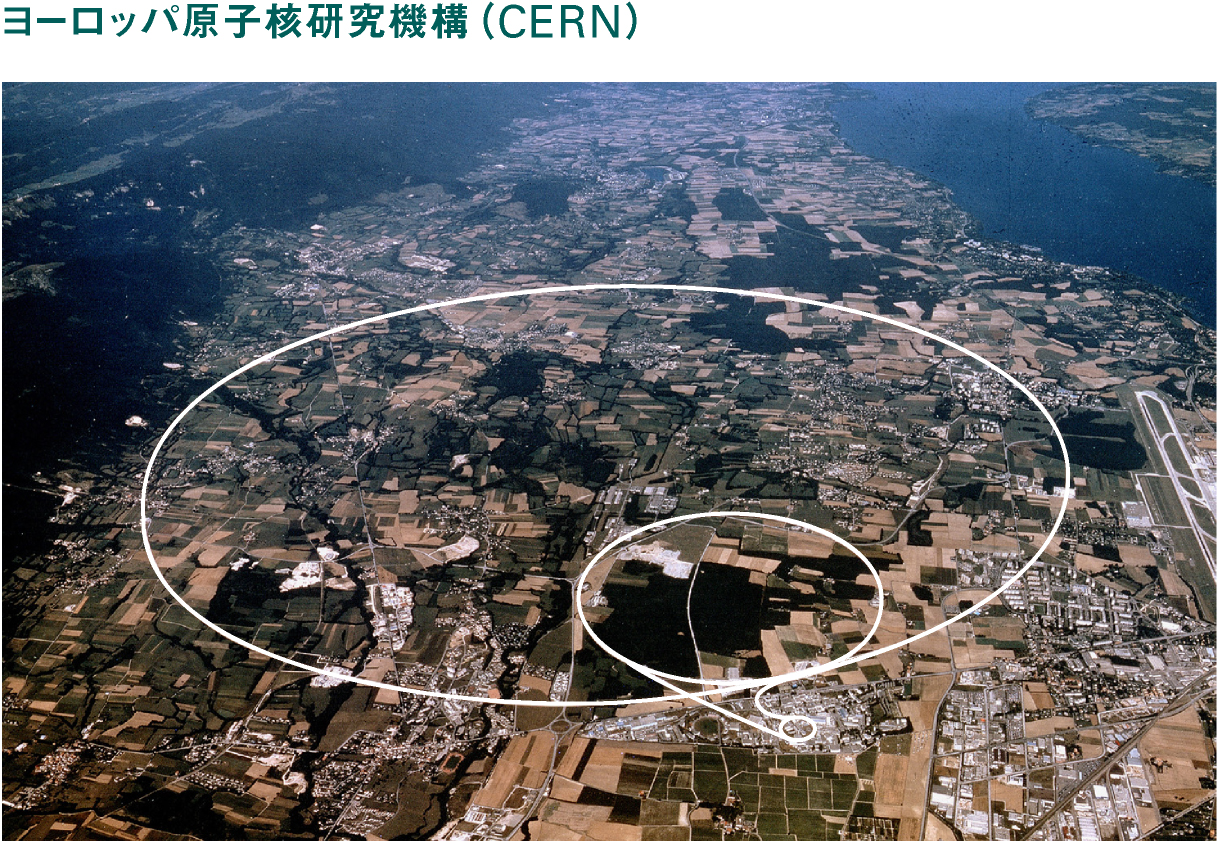
Located in the suburbs of Geneva, Switzerland, CERN is an international joint research institute to study atomic nuclei and elementary particles. It is home to the world’s most advanced particle accelerators. CERN and Yamagata University have signed an institutional collaborative research agreement in 2008.
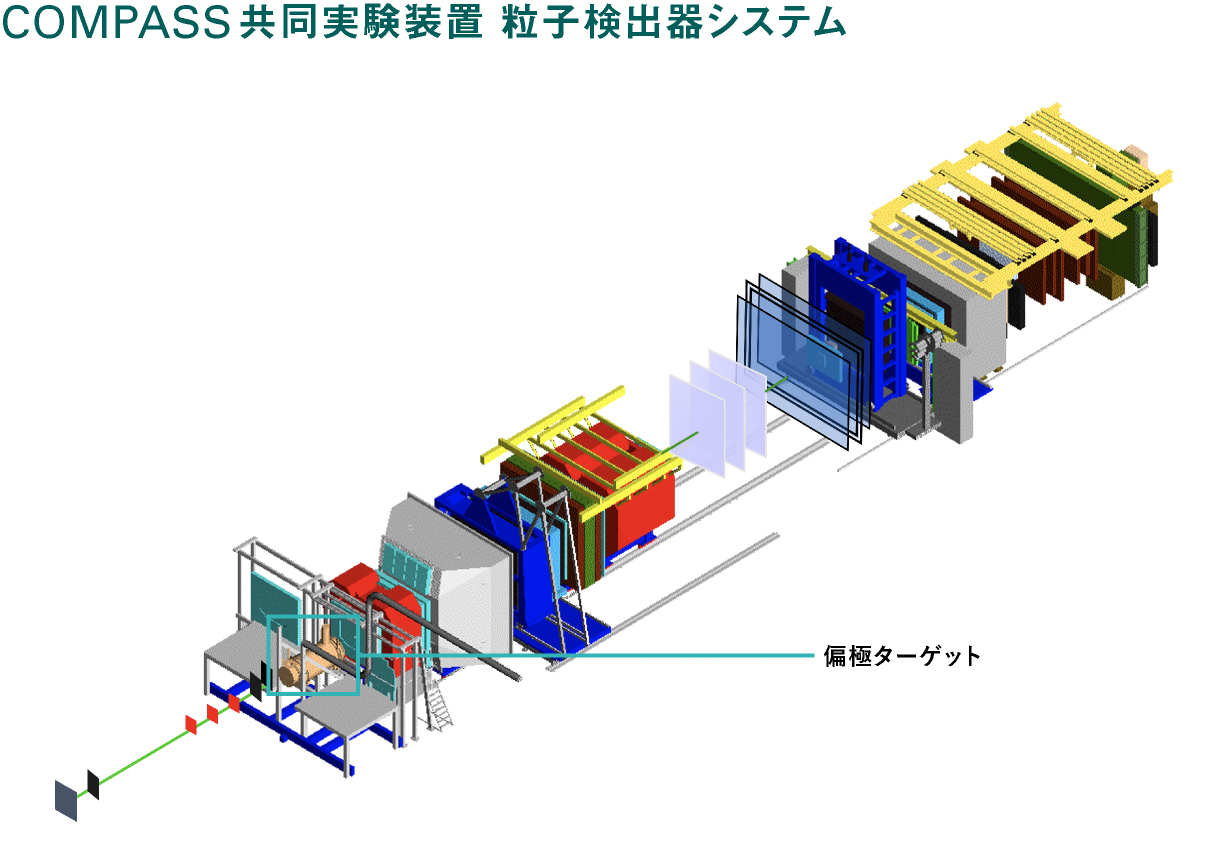
This is a 50-meter-long apparatus with the largest polarized target in the world. The front side is a special apparatus that aligns the direction of atomic nuclear spins using the polarized target, which is the core instrument used in the experiment. The apparatus was designed and made by the participating Japanese group.
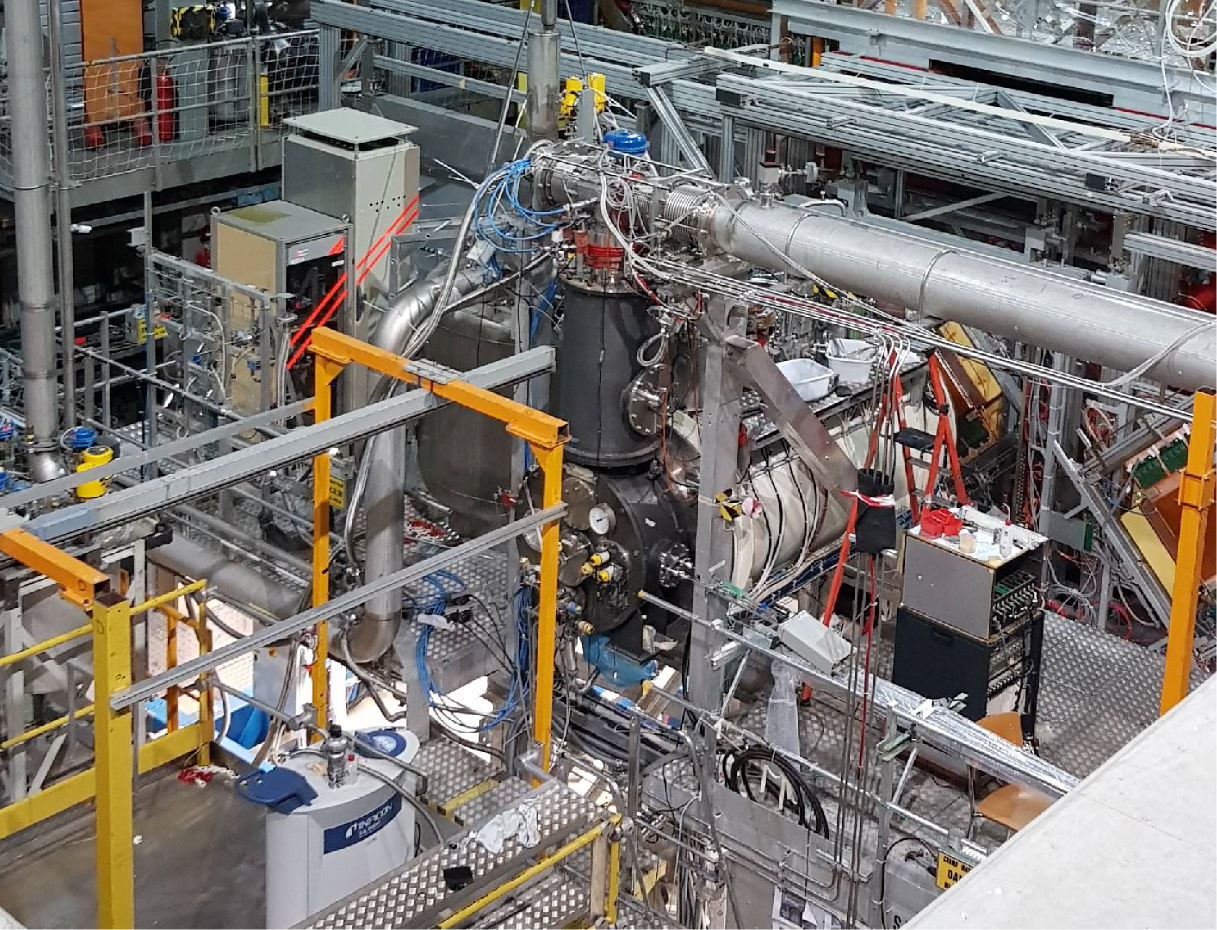
COMPASS boasts the world’s largest polarized target. It can align spin directions at a rate of 90% or higher by cooling down protons to a near-absolute zero temperature of 0.05 K, the application of a strong magnetic field of 2.5 T with a superconductive electromagnet and microwave radiation.
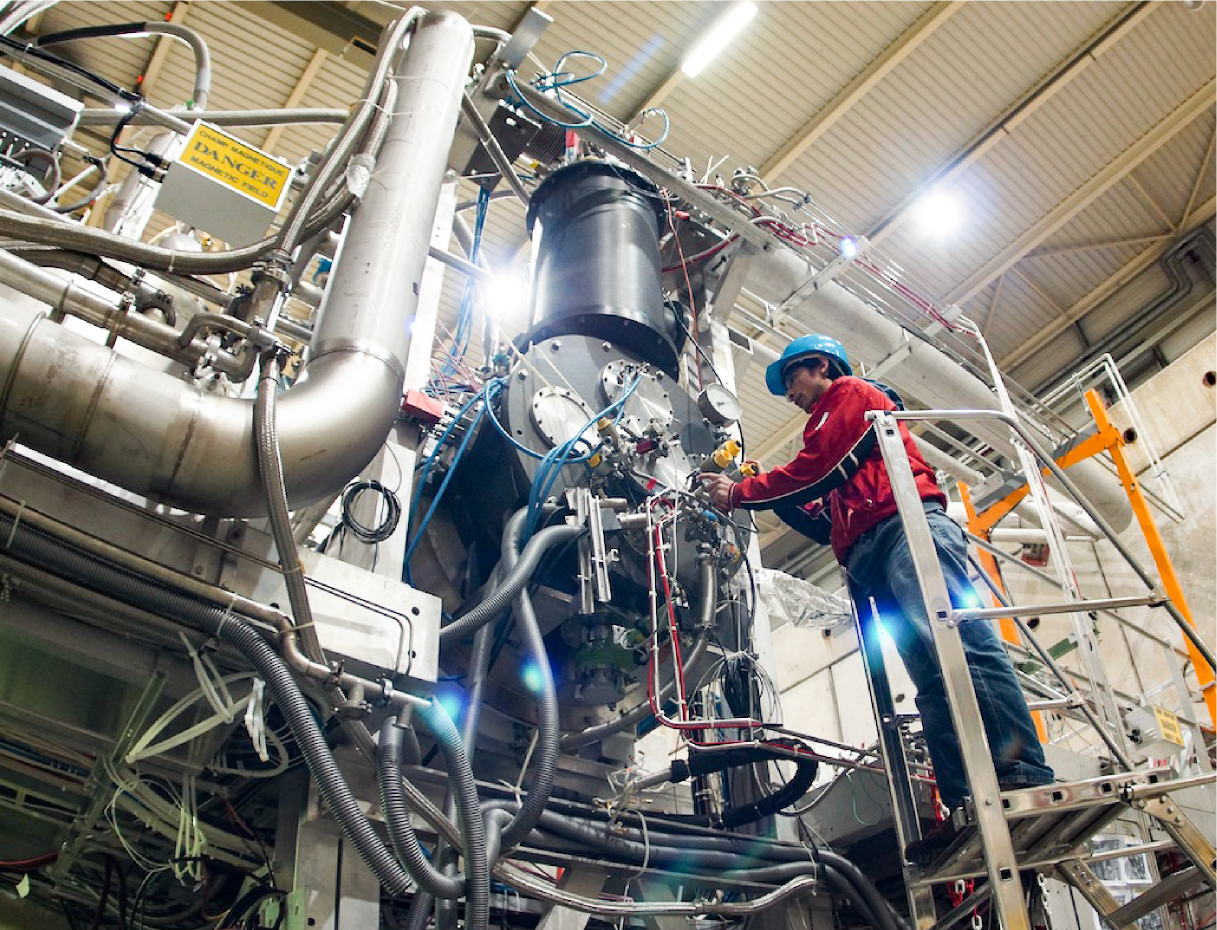
Dr. Doshita, an assistant professor at Yamagata University, makes adjustments to the polarized target. Operation of the apparatus needs technologies involving various fields including near-absolute zero temperature, strong magnetic field, high vacuum, microwaves, nuclear magnetic resonance and electron paramagnetic resonance. Research can be conducted thanks to the constant efforts of well-experienced researchers.
The Japanese group of researchers for COMPASS consists of members from Yamagata University, University of Miyazaki, Chubu University and the High Energy Accelerator Research Organization (KEK). Currently, Dr. Norihiro Doshita, an assistant professor at Yamagata University who was trained under Professor Iwata, is stationed in Geneva. Dr. Doshita is in charge of making adjustments to the COMPASS large polarized target. Professor Iwata was also hoping to come and go between Yamagata University and CERN but he is being unable to do so because of the COVID-19 pandemic. Yet still, there seems to be no negative effects on the research plan: he says that he can check the polarized target apparatus at CERN from Yamagata University on a screen and even make adjustments like turning valves.
Professor Iwata has been participating in the international collaborative study at CERN since 1991. His motivation comes from his inquisitive mind, eager to solve mysteries in the natural world. “While research work that can help people is necessary, it is also important to probe into scientific principles. New discoveries tend to be born from failure, more often than we think. Eccentric ideas from students can provide clues too,” he says. Professor Iwata would like to take many students to Geneva, a hub of many international organizations, and allow them to nurture wider global perspectives. The university would like to closely watch the ongoing COMPASS Collaboration while anticipating that it will bring successful outcomes and nurture young researchers who can take up new quests along the way.
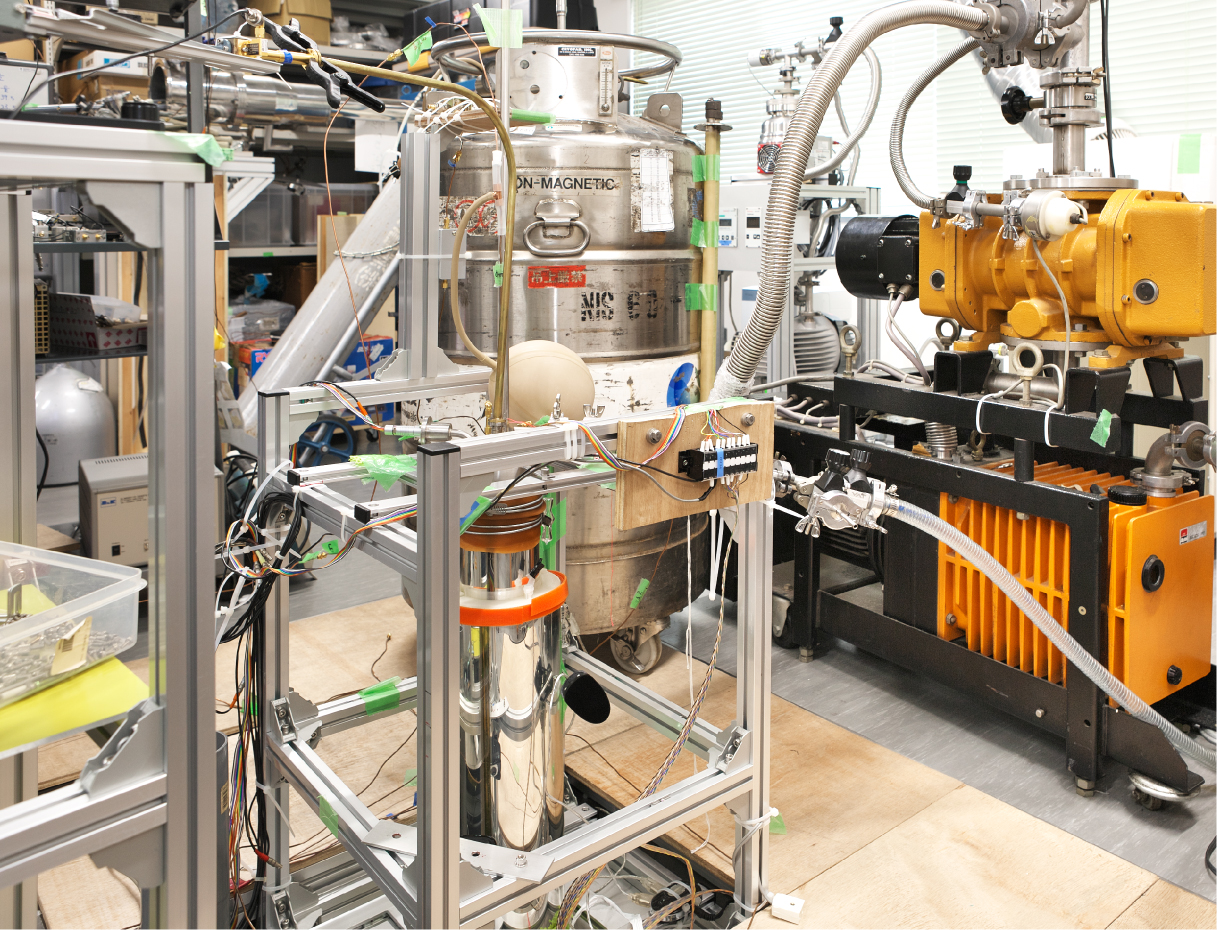
The apparatus installed at Yamagata University extends downstairs and is set at -272 Cº to fix the direction of proton spins. Data collected by this apparatus will be reflected to the experiments taking place at CERN.
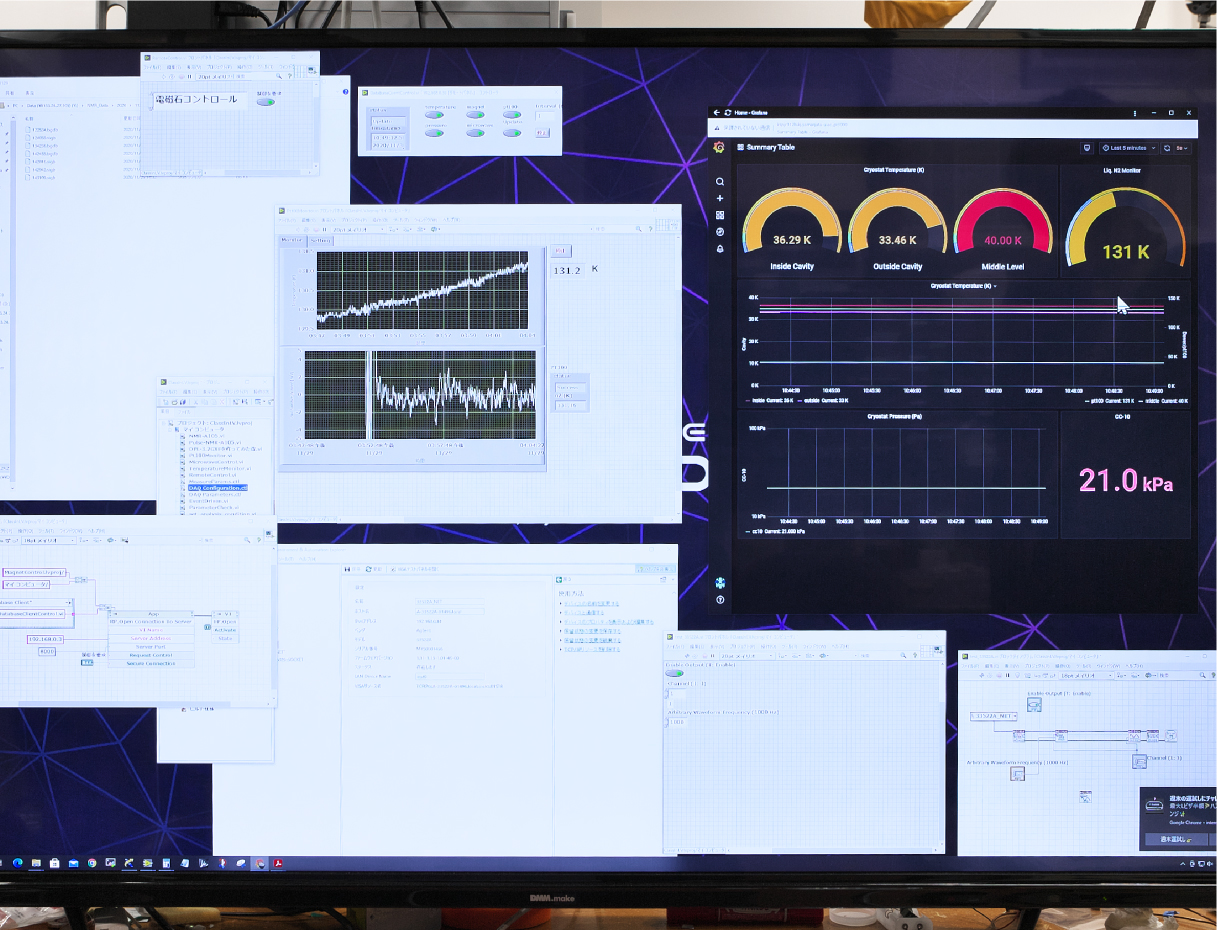
The condition of the apparatus at CERN is shown on a screen to monitor it remotely. Whether the apparatus is working correctly can be checked from data on temperature, pressure, helium gas flow and other parameters.
つづきを読む

Dr. Takahiro Iwata, Professor: Dr. Iwata specializes in elementary particle physics and nuclear physics. For COMPASS Collaboration, he is leading the group of Japanese researchers and is playing a key role in the operation of the polarized target apparatus. Dr. Iwata holds a Doctor of Science degree from the Graduate School of Science, Nagoya University.
※内容や所属等は2020年12月当時のものです。